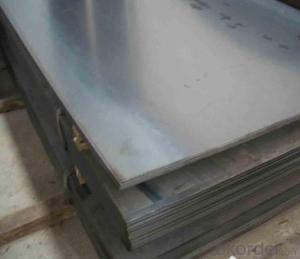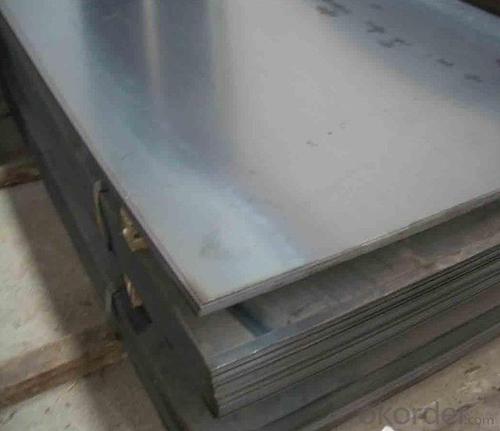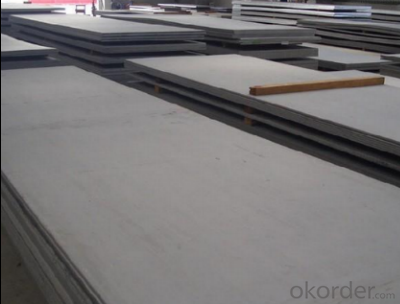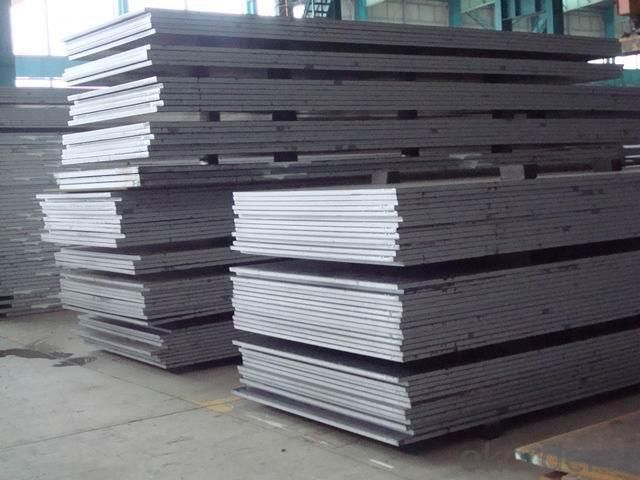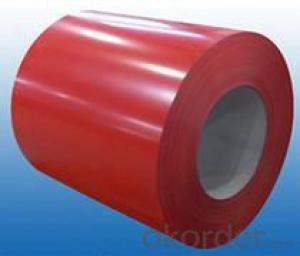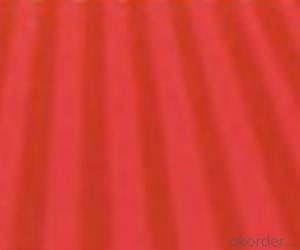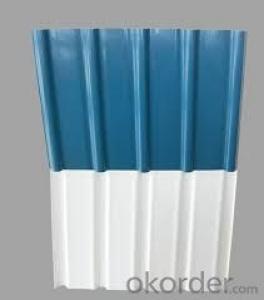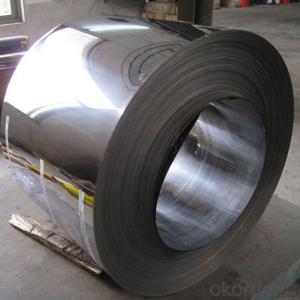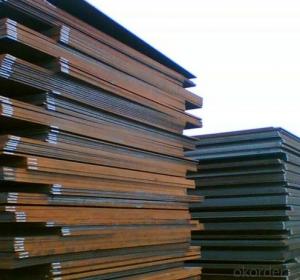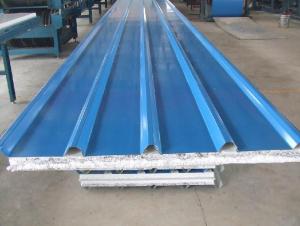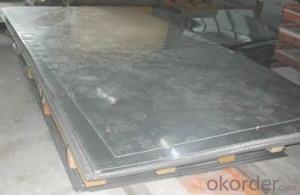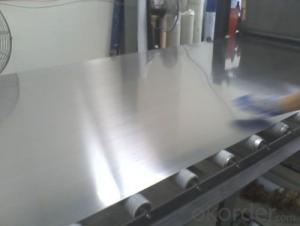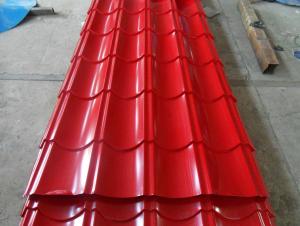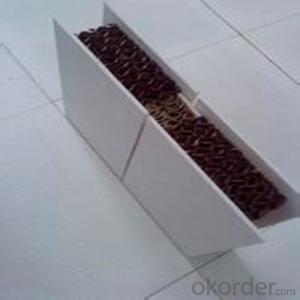High-strength Wear Plate
- Loading Port:
- China Main Port
- Payment Terms:
- TT OR LC
- Min Order Qty:
- -
- Supply Capability:
- -
OKorder Service Pledge
OKorder Financial Service
You Might Also Like
GRADE:GB/T24186 or according to customer's requirements
ADVANTAGE:Steel surfacehardnessuniformity,goodcutting and weldingproperties,roughness less than 6mm/m
Application:Formining machinery,heavy truckscars,concrete mixingequipment
According to the characteristics of the steel group is divided into five categories: austenitic size, austenitic grain size, iron-iron grain size, shape, markov precipitation sclerosis type.
Requests can withstand oxalic acid, sulfuric acid, nitric acid, nitric acid-ferric sulfate-hydrofluoric acid, sulfuric acid, phosphoric acid, formic acid, copper sulfate, acetic acid, etc. Various kinds of acid corrosion, widely used in chemical industry, food, medicine, paper making, oil, atomic energy industry etc, as well as the construction, kitchen utensils, tableware, vehicles of all kinds of parts, household appliances.
In order to ensure that each kind of stainless steel plate of the yield strength, tensile strength, elongation and hardness of mechanics performance accords with a requirement, steel plate must pass before delivery annealing, solid solution treatment, aging treatment of heat treatment, etc.
Stainless steel plate [1] the surface is bright and clean, have a high plasticity and toughness and mechanical strength, acid and alkaline gas and other media, the solution of the corrosion. It is not an easy to rust of alloy, but not absolutely doesn't rust.
Stainless steel corrosion depends primarily on its alloy composition (chrome, nickel, titanium, silicon, aluminum, etc) and internal organizational structure, plays a main role is chrome elements. Chrome has the very high chemical stability, can in the steel surface passivation membrane formation, the metal and isolated, protect steel plate were not oxidation, enhance the steel corrosion resistance. Passivation membrane destruction, the corrosion resistance will decline.
- Q: Can steel sheets be used in the food processing industry?
- Yes, steel sheets can be used in the food processing industry. Steel is a popular choice for food processing equipment and materials due to its strength, durability, and corrosion resistance. It is commonly used in the construction of food storage tanks, conveyor belts, cutting surfaces, and other machinery. Additionally, steel sheets can be easily cleaned and sanitized, making them suitable for maintaining high hygiene standards in food processing facilities.
- Q: What are the safety precautions when handling steel sheets?
- When handling steel sheets, there are several safety precautions that should be followed to ensure the well-being of individuals and prevent accidents. These precautions include the following: 1. Personal Protective Equipment (PPE): It is essential to wear the appropriate PPE when handling steel sheets. This typically includes safety goggles or glasses, gloves, and steel-toed boots. PPE helps protect against potential injuries such as cuts, burns, and eye damage. 2. Proper Lifting Techniques: Steel sheets can be heavy and awkward to handle, so it is crucial to use proper lifting techniques to avoid strain or injury. Lift with your legs, not your back, and use team lifting when necessary. Avoid any sudden or jerky movements while handling the sheets. 3. Secure Storage and Transport: When storing or transporting steel sheets, ensure that they are properly secured to prevent them from shifting or falling. Use appropriate equipment such as straps or chains to secure the sheets, and make sure they are evenly distributed to maintain balance. 4. Clear Work Area: Before handling steel sheets, ensure that the work area is clear of any obstacles or debris. This will help prevent tripping or slipping hazards and provide a clear path for moving the sheets. 5. Adequate Lighting: Proper lighting is essential to ensure good visibility when handling steel sheets. Insufficient lighting can increase the risk of accidents and injuries, so make sure the work area is well-lit to avoid any potential mishaps. 6. Training and Education: It is important for individuals handling steel sheets to receive proper training and education on safe handling procedures. This includes understanding the weight and dimensions of the sheets, as well as the correct techniques for lifting and moving them. 7. Awareness of Sharp Edges: Steel sheets often have sharp edges, which can cause cuts or lacerations. Always handle the sheets with caution and be aware of any sharp edges. If necessary, use protective guards or edge protectors to minimize the risk of injury. 8. Regular Maintenance and Inspection: Regularly inspect the steel sheets for any signs of damage, such as sharp edges, rust, or structural weaknesses. Replace or repair any damaged sheets to ensure safe handling. By following these safety precautions, individuals can minimize the risk of accidents and injuries when handling steel sheets. It is important to prioritize safety and take the necessary steps to protect oneself and others in the work environment.
- Q: Are steel sheets non-magnetic?
- Steel sheets are not necessarily non-magnetic. Their magnetic properties are contingent upon the composition and processing of the steel. Various types of steel, like austenitic stainless steel, lack magnetism, whereas ferritic and martensitic stainless steel can possess it. Additionally, external factors like temperature and magnetic fields can impact the magnetism of steel sheets. Thus, it is crucial to assess the type and characteristics of the steel sheet to ascertain its magnetic behavior.
- Q: Are steel sheets suitable for railway track construction?
- Yes, steel sheets are suitable for railway track construction. Steel sheets are commonly used in the construction of railway tracks due to their high strength, durability, and resistance to wear and tear. They provide stability to the tracks, allowing trains to operate smoothly and efficiently. Additionally, steel sheets are capable of withstanding heavy loads and extreme weather conditions, making them an ideal choice for railway track construction.
- Q: Do steel sheets have any environmental benefits?
- Yes, steel sheets have several environmental benefits. Firstly, steel is a highly recyclable material, meaning that it can be reused multiple times without losing its quality. This significantly reduces the need for new steel production, which in turn reduces the extraction of raw materials and the energy consumption associated with manufacturing. Recycling steel also helps in reducing greenhouse gas emissions and conserving natural resources. Additionally, steel sheets are extremely durable and long-lasting. They have a high resistance to corrosion, which means they require minimal maintenance over their lifespan. This durability reduces the need for frequent replacements, thus reducing the demand for new steel production and the associated environmental impact. Moreover, steel sheets can contribute to energy efficiency in buildings. When used as roofing or cladding material, steel sheets can provide excellent insulation properties, helping to reduce heating and cooling energy requirements. This leads to lower energy consumption and, consequently, a reduced carbon footprint. Furthermore, steel sheets are fire-resistant, which enhances the safety of buildings and reduces the risk of fire-related accidents. This can have positive environmental impacts by minimizing the release of harmful emissions and pollutants resulting from fires. In conclusion, steel sheets offer various environmental benefits, such as recyclability, durability, energy efficiency, and fire resistance. These qualities contribute to a more sustainable and eco-friendly approach in construction and manufacturing industries.
- Q: Can the steel sheets be used for magnetic shielding?
- Yes, steel sheets can be used for magnetic shielding. Steel is a ferromagnetic material, which means it can effectively redirect and absorb magnetic fields. When steel sheets are used to shield against magnetic fields, they create a barrier that helps to prevent the penetration of magnetic flux into a designated area. This property makes steel sheets an excellent choice for applications where magnetic shielding is required, such as in electronics, medical devices, and sensitive laboratory equipment. However, the effectiveness of steel sheets for magnetic shielding can depend on various factors, including the thickness and composition of the steel, as well as the strength and frequency of the magnetic field being shielded. Therefore, it is important to consider these factors and consult with experts to ensure the appropriate steel sheets are selected for optimal magnetic shielding.
- Q: Bathroom washing machine, galvanized steel and color steel which good?
- The outer shell of a washing machine, even if it is a zinc plated steel sheet, usually adds a beautiful coating to the surface, equal to double protection
- Q: What is the process of applying protective coatings to steel sheets?
- The process of applying protective coatings to steel sheets typically involves several steps. First, the steel sheets are thoroughly cleaned and prepared to ensure a clean and smooth surface. This may involve removing any existing rust, dirt, or contaminants. Next, a primer or base coat is applied to the steel sheets. The primer helps to promote adhesion between the steel surface and the protective coating. It also provides additional corrosion resistance. After the primer has dried, the main protective coating is applied. This coating can vary depending on the specific requirements and intended use of the steel sheets. Common types of protective coatings for steel include epoxy, polyurethane, or powder coatings. The coating is carefully applied to ensure an even and consistent coverage. Once the protective coating has been applied, the steel sheets are typically cured or dried according to the manufacturer's instructions. This allows the coating to fully bond and harden, increasing its durability and resistance to corrosion. Overall, the process of applying protective coatings to steel sheets involves cleaning and preparing the surface, applying a primer, applying the main protective coating, and properly curing or drying the coating to ensure optimal performance.
- Q: What do you pay attention to?
- 1, the plastic bumper with 150-320# sandpaper, if the upwarping phenomenon in the injured, also with a knife will become warped skin scraping.2, in addition to oil, dust, after the proportion of the mixture of good ash fill the depression, to dry solid, first with 320-400# sandpaper polished, and then use 600-800# sandpaper grinding.3. After drying, place a primer newspaper at about 40mm of the ash.4, after removing oil and dust, with diluted primer (primer and quick drying diluent ratio of 1:1), empty spray again, dry and then spray again. In order to reduce the number of spraying and grinding time, it is necessary to ensure the smooth flow of primer, without flashing between each time. Dry the surface of the paint film, until the primer lose brightness, you can continue spraying, and then go round and round until you reach the thickness of the depression.5, in order to shorten the volatilization time, can use high temperature equipment baking, do not have to remove the newspaper, dry solid with 600-800# sandpaper to throw flat, but must not wear primer layer leakage.
- Q: Are the steel sheets coated with any protective material?
- Indeed, a protective material is applied to the steel sheets, ensuring their durability and resistance against corrosion. Typically, this coating is added to the steel sheets to enhance their strength and safeguard them from external elements such as moisture, chemicals, and adverse weather conditions. It acts as a formidable shield, preventing the steel from rusting or deteriorating. The specific protective material used may vary depending on the intended purpose and specific requirements. However, a commonly employed option is a layer of zinc or zinc-alloy coating, known as galvanized coating. This particular coating offers exceptional defense, significantly prolonging the lifespan of the steel sheets and rendering them suitable for a wide range of industries and applications.
Send your message to us
High-strength Wear Plate
- Loading Port:
- China Main Port
- Payment Terms:
- TT OR LC
- Min Order Qty:
- -
- Supply Capability:
- -
OKorder Service Pledge
OKorder Financial Service
Similar products
Hot products
Hot Searches
Related keywords
